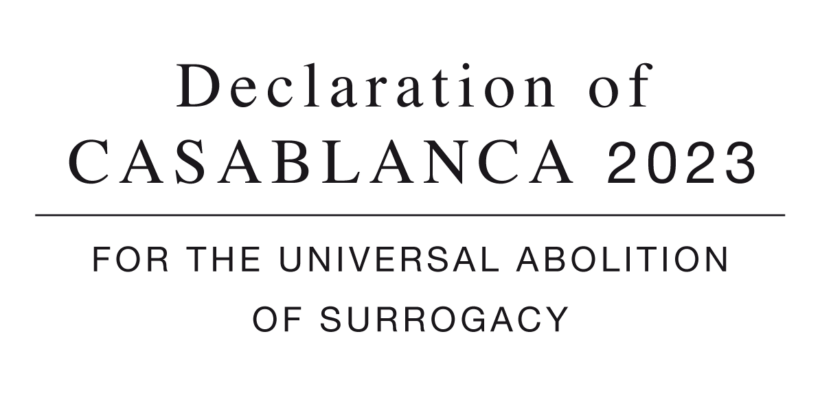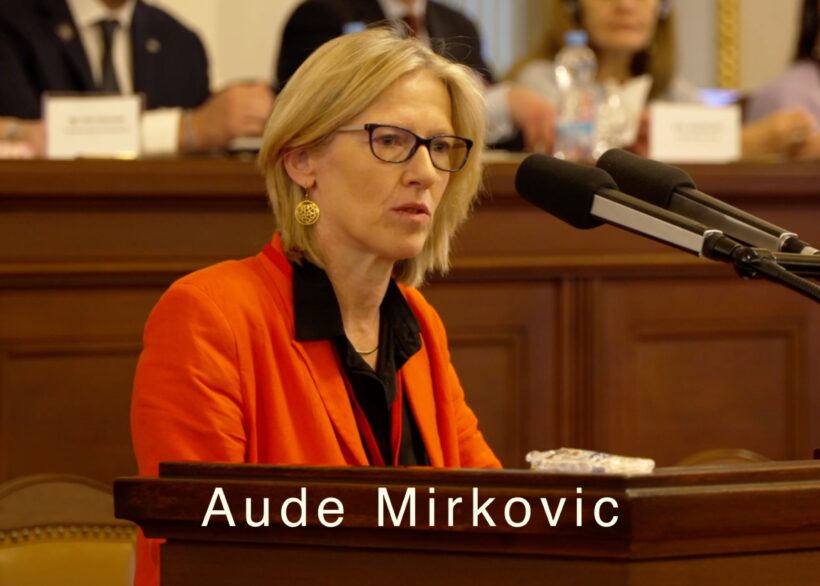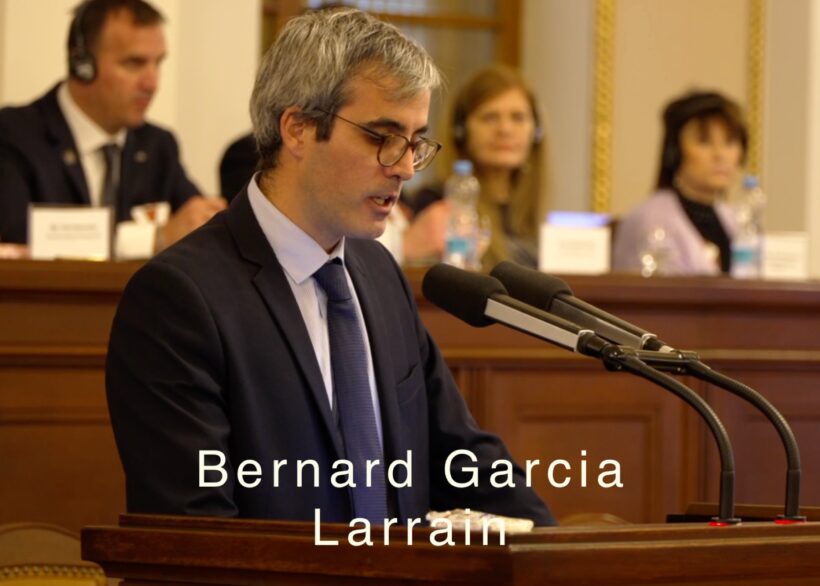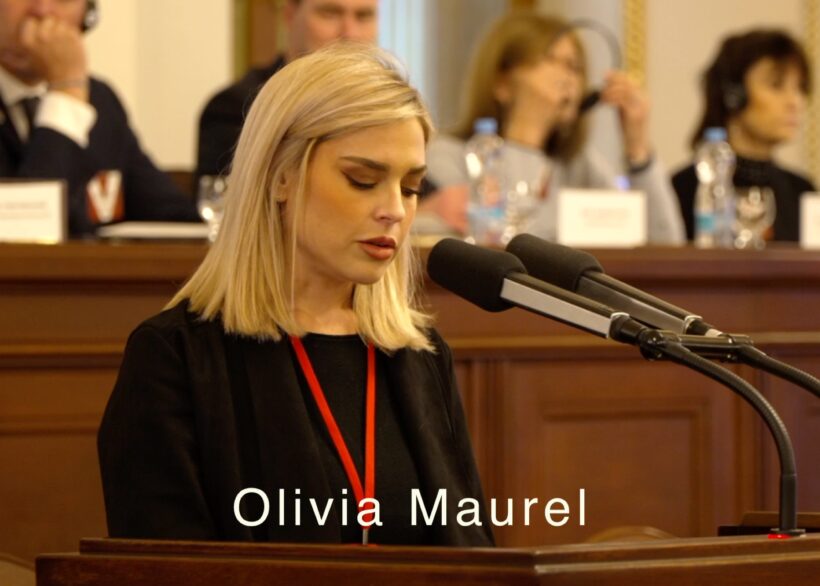
On November 21, 2023, an international conference on surrogacy was held at the Parliament of the Czech Republic, on the initiative of three female members of parliament: Ms. Romana Bělohlávková, Ms. Nina Nováková and Ms. Pavla Golasowská.
The first part was devoted to international speeches, including the following:
• Olivia Maurel, a young woman born of surrogate motherhood,
• Aude Mirkovic, lecturer in private law and member of the non-governmental organization « Juristes pour l’enfance » and,
• Bernard Garcia, doctor of law and coordinator of the Casablanca Declaration.
Olivia was born of a surrogacy performed by French parents in the United States. Based on her own story, she explains how she has always suffered from the wound of abandonment caused by the separation from her birth mother.
• For her, surrogacy is always harmful to the child, even in cases such as hers, where the surrogacy went “well” in terms of the criteria considered to be those of a “good” surrogacy: a surrogacy carried out in the United States, well-off intended parents able to provide their daughter with good educational conditions, no disputes either during the pregnancy or at birth between the surrogate mother and her intended parents.
• And yet, Olivia, the child born of this “successful” surrogacy, has suffered a lifetime of anxiety, depression, and addiction caused by this abandonment, and now finds that the weight of this burden is being passed on to the next generation, not sparing her children.
• Her message to members of parliament is clear: there is no such thing as a good surrogacy, and there is never any justification for forcing a child to be born to separate it from its birth mother.
• It doesn’t matter whether or not the birth mother is genetically linked to the child, because the child doesn’t have the capacity for this kind of reflection: the woman who bore him is the only one he knows, and separation leaves him with an unfathomable void that the intended parents are unable to fill, no matter how devoted they may be.

Legal expert Aude Mirkovic is a lecturer in private law. She explains that surrogacy leads to harm to the child, in all surrogacies and whatever the modalities:
• Damage to the dignity of the child, who is treated as an object since he or she is ordered and handed over.
• The infringement of the child’s filiation, since his or her maternal filiation is split up, divided between several women, and sometimes even completely evicted when the sponsors are men, alone or in a couple.
• Exposing the child to the traumatic shock of separation from the woman who bore her.
• This is why no framework can make surrogacy acceptable because the very principle of surrogacy violates the rights of the child.
• Protecting children born of surrogacy is a laudable objective, but it in no way prevents us from fighting surrogacy. On the contrary, combating this practice is the only effective way to protect children, because once surrogacy has been carried out, there is no truly satisfactory “solution” for the child.

Bernard Garcia, coordinator of the Casablanca Declaration, stresses the international dimension of the issue:
• All countries are affected by the expansion of the surrogacy market, even though most prohibit the practice, because clinics and agencies come to their countries to offer their services, and their nationals travel abroad programs to procure a child through surrogacy.
• This international market requires a global response. The main principles and texts of international law can easily be interpreted as prohibiting surrogacy. However, this international market thrives in practice because there is no specific treaty prohibiting the practice.
• This is why the Casablanca Declaration, signed on March 3rd of 2023 by 100 experts of 75 nationalities, calls on countries to take action to combat surrogacy on their territory and commit to a universal international abolition convention: surrogacy is intrinsically contrary to human dignity and human rights, and no framework whatsoever can make it acceptable.
Videos of the speeches are available on the website of the Parliament of the Czech Republic:
https://twitter.com/maurel_olivia/status/1727428066211705271
https://videoarchiv.psp.cz/playa.php?cast=3592&tmo=21.11.202314:24:03










